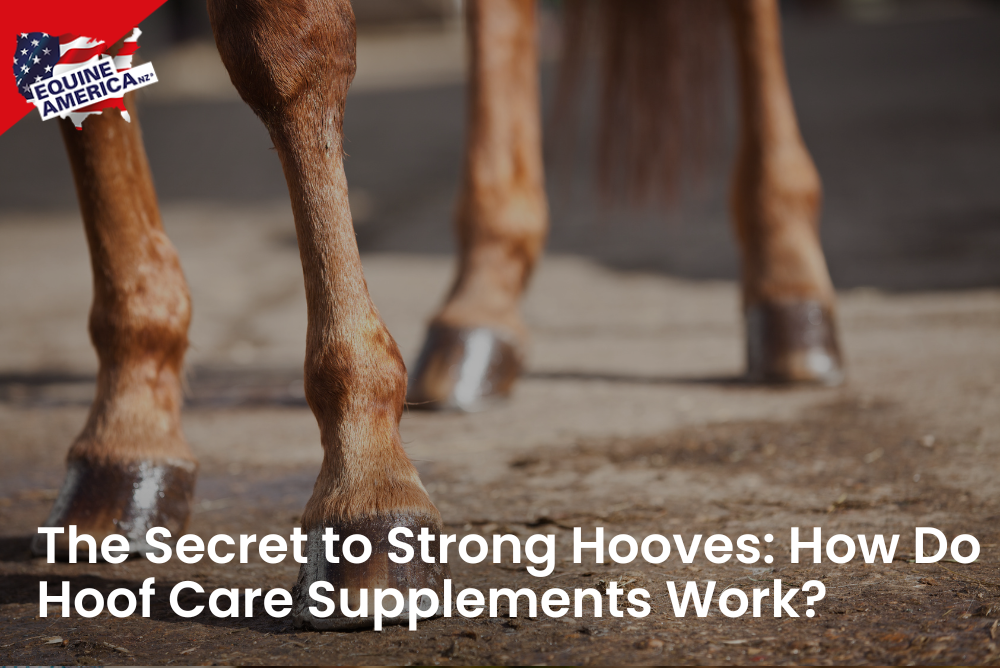The old saying, "You are what you eat," holds true for our equine companions as well. When it comes to the health and performance of horses, their digestive system plays a pivotal role.
In recent years, equine digestive supplements have gained popularity as a means to enhance the well-being of these magnificent animals. But do they really work?
In this article, we'll delve into the world of equine digestive health, explore common issues, and investigate the effectiveness of digestive supplements.
Understanding Equine Digestive System
To comprehend the impact of digestive supplements, we must first understand the intricacies of the equine digestive system. Horses are unique in that they are non-ruminant herbivores with a single-chambered stomach. Their digestive tract comprises the mouth, esophagus, stomach, small intestine, cecum, large colon, small colon, and rectum.
Horses are designed to graze for the majority of the day, producing saliva that helps neutralize stomach acid and aid digestion. Food enters the stomach, where enzymes and acid break it down. Subsequently, it moves through the small intestine, where nutrient absorption occurs. The cecum and colon, known as the hindgut, are responsible for further fermentation and absorption of fibrous material.
Common Digestive Issues in Horses
Colic
Colic, a broad term for abdominal pain in horses, is a prevalent and potentially life-threatening digestive issue. It can have various causes, including intestinal blockages, gas buildup, or twists in the gut.
Gastric Ulcers
Gastric ulcers, particularly in the stomach lining, can affect horses exposed to stressful conditions, intensive training, or irregular feeding patterns. These ulcers can lead to discomfort and decreased performance.
Hindgut Acidosis
Hindgut acidosis results from an imbalance in the microbial population within the cecum and colon. It can lead to colic, diarrhea, and laminitis, highlighting the importance of hindgut health.
How Digestive Supplements Work
Types of Digestive Supplements
There is a range of digestive supplements available, each designed to address specific issues or support overall digestive health. These supplements often contain various ingredients, including probiotics, prebiotics, enzymes, and antacids.
Key Ingredients and Their Functions
Probiotics introduce beneficial microorganisms into the digestive tract, aiding in the fermentation and breakdown of food. Prebiotics serve as food for these microorganisms. Enzymes play a crucial role in breaking down complex nutrients, while antacids help neutralize stomach acid.
The Science Behind Their Effectiveness
Studies have shown that certain digestive supplements can positively impact the microbial balance in the equine gut. By providing probiotics and prebiotics, these supplements can enhance digestion and nutrient absorption, reducing the risk of digestive disorders.
Benefits of Digestive Supplements
Improved Nutrient Absorption
One of the primary benefits of digestive supplements is their ability to improve nutrient absorption. When the digestive system functions optimally, horses can derive more nutrients from their feed, leading to better overall health and performance.
Reduction in Digestive Disorders
Digestive supplements can help reduce the occurrence of common issues such as colic, ulcers, and hindgut acidosis. By promoting a healthy gut environment, these supplements act as preventive measures.
Enhanced Overall Health and Performance
When a horse's digestive system is in good shape, it can perform at its best. This is particularly crucial for performance horses that rely on optimal nutrient absorption and efficient energy utilization.
Factors to Consider When Choosing Digestive Supplements
Horse's Specific Needs
The choice of digestive supplement should align with your horse's specific needs. For instance, a horse prone to colic may benefit from a different supplement than one with recurring ulcers.
Quality and Reputation of the Supplement
Not all digestive supplements are created equal. It's essential to research and choose products from reputable manufacturers with a track record of producing effective supplements.
Feeding and Administration
Consider the ease of feeding and administering the supplement. Some come in powder form to mix with feed, while others are pellets or pastes. Choose one that suits your horse's preferences and your daily routine.
Potential Risks and Side Effects
Possible Adverse Reactions
While digestive supplements generally have a good safety profile, there can be cases of adverse reactions, including gastrointestinal upset. It's essential to monitor your horse closely when introducing a new supplement.
Monitoring Your Horse's Response
Regularly assess your horse's response to the digestive supplement. Look for signs of improved digestion, such as reduced colic incidents, better coat condition, and increased energy levels.
Final Thoughts
In the quest for maintaining optimal equine health, digestive supplements have emerged as valuable tools. They offer a proactive approach to supporting digestive function and overall well-being. While not a magic solution, these supplements, when chosen wisely and administered correctly, can contribute significantly to a horse's digestive health.
However, it's essential to remember that they are only one aspect of comprehensive equine care, which should also include a balanced diet, regular exercise, and attentive management practices. In the end, a healthy digestive system ensures that your horse can thrive and perform at its best, which is every horse owner's ultimate goal.
If you’re looking for high-quality supplements for your horse, consider exploring the range of products offered by us here at Equine America NZ. Our extensive selection of products along with performance-enhancing supplements provide you with suitable options to support your horse’s overall health and performance.
Please give us a call at Equine America NZ today at 0800 440 888 to learn more or leave an enquiry.




